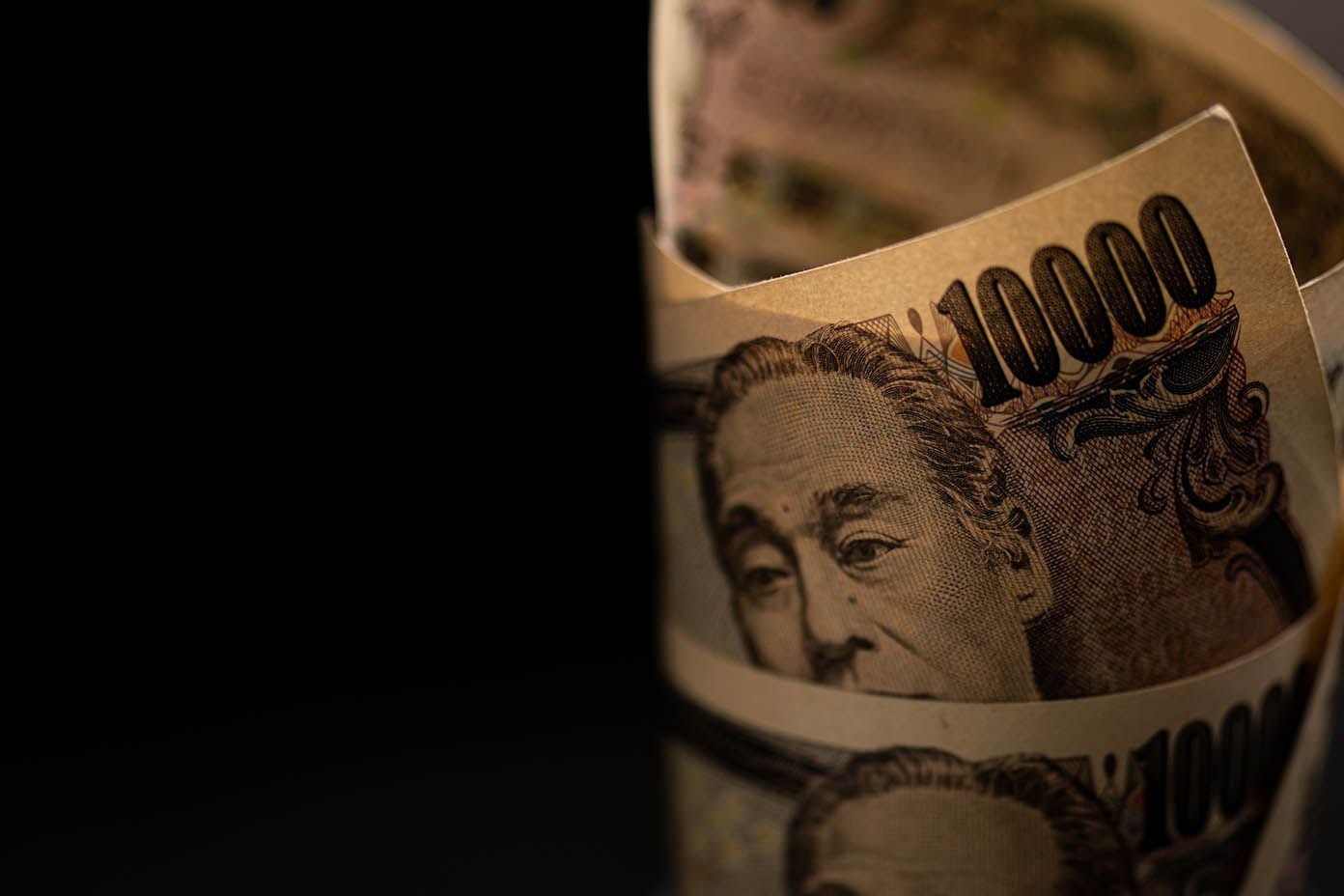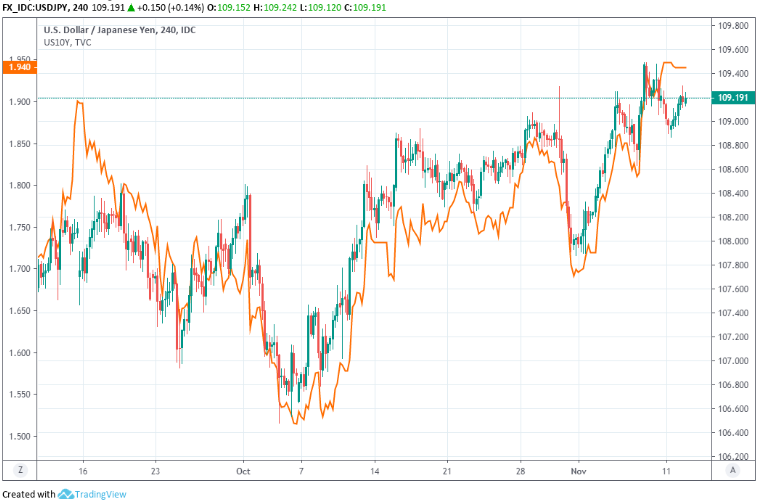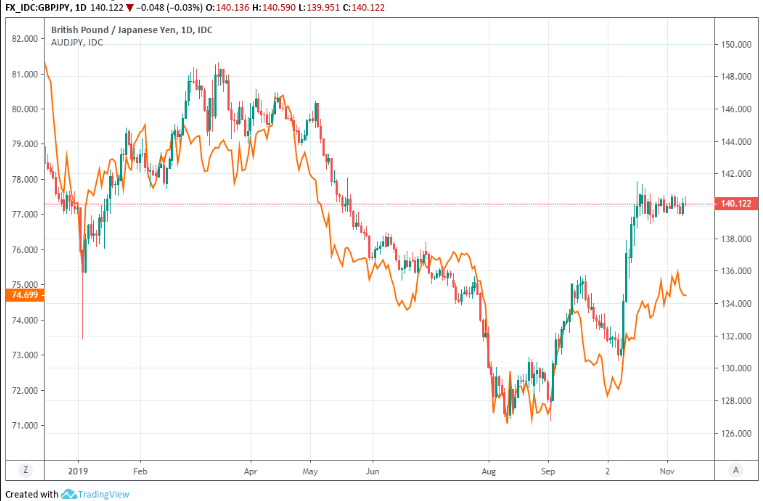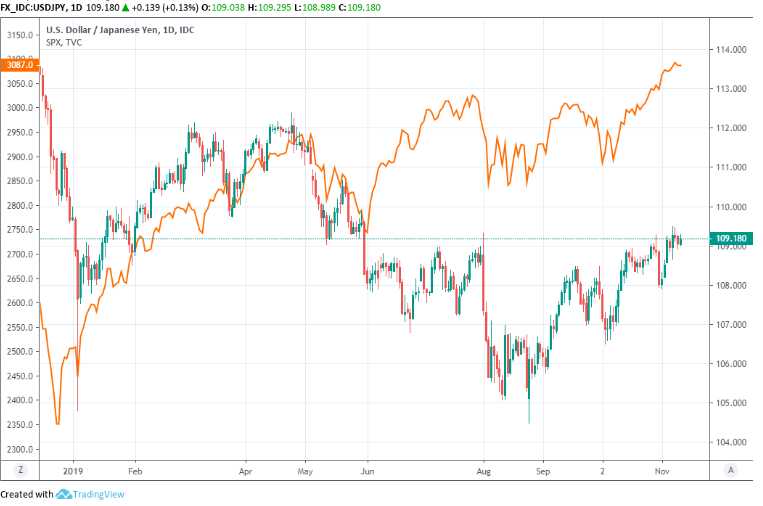The Japanese Yen Draws Interest from Analysts but Trump Speech Looms
- Written by: James Skinner

Image © Adobe Stock
- USD/JPY coasts higher amid firm U.S. yields, rising stock markets.
- As optimism proliferates ahead of Trump's 17:00 trade tariff speech.
- Delay to EU car tariffs in prospect, possible U,S.-China talks update.
- Trade progress, Brexit deal and 'green shoots' of growth all in focus.
- Market risk appetite tipped as key driver of JPY in the week ahead.
The Yen drew interest as a buy prospect among some strategists Tuesday but a looming trade-related speech from President Donald Trump could easily overturn the Japanese currency's applecart through the rest of the week.
Global markets were in an upbeat mood Tuesday as investors looked forward with eagerness to a 17:00 speech from President Donald Trump at the Economic Club in New York as speculation has it that he will announce a further delay of an additional six months to his decision on whether to impose tariffs on imports of European cars pending the outcome of ongoing negotiations.
Another delay would be positive for risk appetite the world over and reinforce perceptions in the investment community that the conditions for a global growth recovery in teh first half of the New Year are slowly but surely falling into place. That would be good news for 'risk' currencies like the Australian Dollar and another headache for safe-havens like the Yen, which have been crushed in the last month as investors celebrated the 'phase one' U.S.-China trade deal proclaimed by Trump on October 11.

Above: USD/JPY rate shown at 4-hour intervals alongside U.S. 10-year government bond yield (orange line, left axis).
"Asian equities are up, bonds yields likewise and yen's given back most of yesterday's gains. Maybe I should listen to our spot trading desk who like selling USD/JPY at 109.60, with stops above 109.80, and don't see a catalyst for a move below about 108.60. But I still like EUR/JPY shorts and with 10-year JGB yields at their highest levels since April, I refuse to buy into the idea that a steeper Japanese curve is really going to weaken the currency," says Kit Juckes, chief FX strategist at Societe Generale.
Japan's Yen ceded ground to a recovering U.S. Dollar last week, prompting the USD/JPY to attempt to overcome a key 'resistance' barrier located around 109.32-to-110.20 area on the charts, although the exchange rate has since failed to sustain its northward climb. Juckes says it's unlikely to break above that barrier and he's not alone either.
"We expect resistance to continue to hold – concerns about the outlook for US financial markets (given declining estimates for corporate profitability and stretched valuations) may limit USDJPY-supportive inflows to the US. However, positive global growth indications and US-China trade momentum may prevent JPY from outperforming trade- and risk-sensitive FX like AUD and NZD. We like long AUDJPY positions targeting 80.00," says Hans Redeker, head of FX strategy at Morgan Stanley.

Above: Pound-to-Yen rate shown at daily intervals alongside AUD/JPY rate (orange line, left axis).
Morgan Stanley is sceptical of suggestions the USD/JPY rate will break decisively in either direction in the short term although it forecasts a decline to 101.0 by year-end and a fall in the Pound-to-Yen rate from 140 to 125. The bank says the U.S. stock market, which is important for the direction of the Yen, will soon run out of gas after having set new record highs through 2019.
The S&P 500 was up 23.6% for 2019 Tuesday but relative valuations are increasingly seen as stretched and with the global economy having slowed from last year's levels, the odds of corporate earnings and general profitability improving further from here are now said to be lengthening. That could mean some of the yield-seeking flows that left Japan earlier this year are due to return over the coming weeks, which could foster a stronger Japanese currency.
"Optimism over an easing of US-China trade tensions and tentative signs of stabilization for the global economy have helped to lift US equities to new record highs. The yen remains tightly negative correlated to the performance of US equities," says Lee Hardman, a currency analyst at MUFG. "We have assumed that global investor risk sentiment would remain favourable in the week ahead."

Above: USD/JPY rate shown at daily intervals alongside S&P 500 index (orange line, left axis).
Japan's MUFG, the world's fifth largest bank and a significant currency dealer, says the Yen has a strong negative correlation with U.S. stocks and that shares might remain buoyant as investors celebrate the nascent improvement in the global economic outlook. Investors have become less downbeat about the future since October 11 when President Donald Trump announced a 'phase one deal' to put the U.S.-China trade war on hold.
USD/JPY is one of the most sensitive Dollar pairs when it comes to interest rates and expectations for global growth because Japan is a large provider of capital to the rest of the world. The country runs surpluses on both the trade as well as current accounts, rather than deficits like the U.S. and UK, but interest rates are about as low as they can get and GDP growth in the world's third largest economy has been weak for decades. That has tended to see the Japanese looking overseas for places to invest.
"Good news over a possible trade deal is certainly now in the price but we don’t see disappointment coming and momentum points to some further yen selling ahead. Our USD/JPY yield based regression model suggests to us that yield is not a reliable influence in determining short-term direction...broader risk appetite and financial market conditions will be the key near-term influence," Hardman says. "For now, we assume risk-on type trading conditions will persist. That points to further yen depreciation."
Above: MUFG internal flows data, foreign stocks and bonds bought by clients at selected intervals. Click for larger image.
Time to move your money? Get 3-5% more currency than your bank would offer by using the services of a specialist foreign exchange specialist. A payments provider can deliver you an exchange rate closer to the real market rate than your bank would, thereby saving you substantial quantities of currency. Find out more here.
* Advertisement

